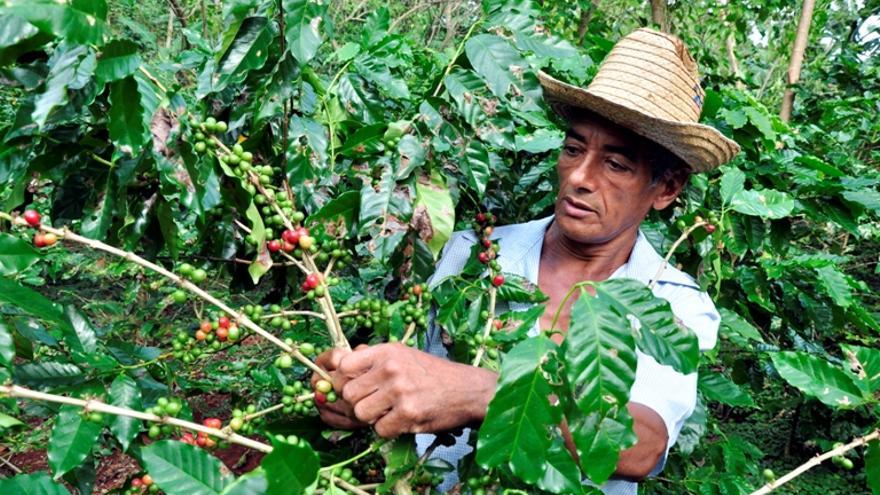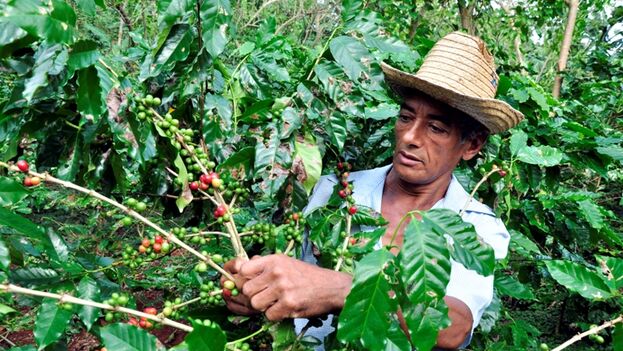
14ymedio, Madrid, 7 December 2023 — On Wednesday, Michelle Curto made a promise in Santiago de Cuba’s Hall of Mirrors for which he will be held accountable if he does not make good on it. “For every kilogram of Cuban coffee that is exported, the same amount must be made available to Cuban consumers,” said the Italian businessman, who serves as president of the Association for Cultural and Economic Exchange with Cuba. A political activist, Curto has also been trying for years to get the BioCuba Caffe project off the ground. That finally happened yesterday when the new public/private partnership had its official launch.
“Whenever we export coffee, we will have to ensure that there will be enough for the Cuban market. We will always keep the producers front and center,” said the Italian businessman. Many Cubans will find his statement hard to believe. They have grown tired of drinking a foul blend of equal parts coffee and peas while the authorities crow about how high the demand is for Cuban coffee and sign export deals.
The deputy minister of Foreign Trade, Ana Teresita Gonzalez, said the new venture is taking an innovative approach, moving away from conventional methods of coffee production
“The new venture is taking an innovative approach in that it does not rely on conventional methods of coffee production,” said the deputy minister of Foreign Trade, Ana Teresita Gonzalez. “It is committed to a clean product, promoting its preservation and [prioritizing] social responsibility. At the same time, it will encourage good agricultural practices in order to improve crop yields and coffee quality.”
Participating in the signing ceremony were Mario Cerruti, director general of the Italian Lavazza Foundation; Matteo Saccani, director general of Made in Italy; and Tamara Arzuaga, president of Cuba’s Agroforestry Mercantile Society.
Santiago de Cuba “is the benchmark for coffee production, supplying 40% of the country’s total volume of


